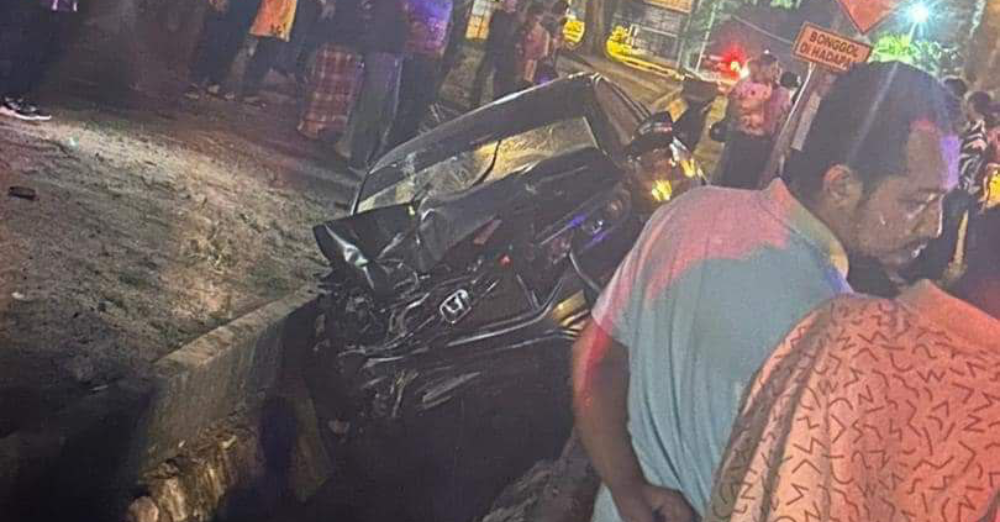Malaysian law must evolve to address caregiver accountability for mentally unfit individuals - Lawyer
Negligence in caregiving could lead to situations that endangered others, highlighting the need for clearer legal provisions.

SHAH ALAM - Malaysian law must evolve to better address the accountability of caregivers for mentally unfit individuals, as negligence in caregiving can lead to dangerous situations for others.
Lawyer Kokila Vaani Vadiveloo emphasised that with the increasing awareness of mental health issues, Malaysian law must evolve to tackle the complexities surrounding mental illness and accountability, especially in cases such as road accidents.
“Generally, individuals cannot be held responsible for the actions of someone else, even if that person is mentally ill, as legal responsibility typically requires intent or awareness of one’s actions.
“However, the current legal framework could benefit from changes that clarify the responsibilities of family members and caregivers in managing individuals with mental illness.
“While the Mental Health Act 2001 ensures the safety and protection of individuals with mental health conditions, it does not fully address the accountability of caregivers who may fail in their duty to care for a mentally unfit person,” she said.
Kokila stressed that negligence in caregiving could lead to situations that endangered others, highlighting the need for clearer legal provisions.
“At present, guardians can only be held accountable for the actions of individuals under 18, as outlined in the Child Act 2001.
“It is worth considering extending this accountability to cover adults as well, recognising the role of caregivers in supporting mentally ill individuals while also safeguarding public safety.
“This responsibility should be evaluated on a case-by-case basis. For instance, in Public Prosecutor v. Sam Ke Ting, the liability of the parents was scrutinised, although some argued the Child Act should not apply, as the children involved had left home without parental consent,” she said.
For the record, on Feb 18, 2017, then 22-year-old Sam Ke Ting ploughed into a group of teenagers in modified bicycles, resulting in the death of eight teenagers and injuries to eight others
Kokila outlined several suggestions to improve the law in addressing the complexities of mental illness today
“Firstly, clearer legal provisions for mental health and accountability are essential. While Section 84 of the Penal Code allows for exemption or discharge from liability for wrongdoing due to mental illness, this provision is broad and leaves room for inconsistencies or abuse of the defence.
“A more robust legal framework specifically addressing mental illness is necessary to ensure fairness and consistency.
“Secondly, expanding the responsibilities of caregivers and family members should be considered. Clearer guidelines could be established, imposing a legal obligation on caregivers to prevent mentally ill individuals from committing harmful acts, such as ensuring car keys are kept in a secure place.
“However, this must be balanced with the caregivers' capacities, as imposing overly stringent rules could be unfair for situations beyond their control,” she added.
Meanwhile, automotive expert Hezeri Samsuri has called for stricter measures to ensure accountability in accidents involving drivers with mental health issues.
He emphasised the need to prevent individuals with mental illnesses from accessing vehicles, as victims of such accidents struggle to claim compensation.
"If the driver has mental health issues, it is difficult to file any claims if an accident occurs and the driver will only be sent to the mental health treatment unit.
“That is why we need a way to ensure that individuals with mental illness do not have access to vehicles and someone must be held responsible,” he said.
Hezeri also stressed the importance of monitoring individuals with medical conditions like epilepsy to assess their driving fitness.
"This is not about being difficult, tedious or overreacting. It is a matter of safety and the lives of road users, which could involve people you know.
“To those who say I am overreacting, you have no place on the road because you fail to consider the safety of other road users,” he emphasised.
Kokila and Hezeri's concerns arise from a tragic incident in which three Universiti Teknologi Mara (UiTM) Dungun students named Khairil Anwar Jamaludin, 20; Muhammad Akmal Md Tukirin, 25; and Ku Adib Aizad Ku Azmi, 20; lost their lives when their motorcycles were struck by a sports utility vehicle driven by a woman believed to be mentally unstable.
The woman is currently under a four-day remand for further investigation.











